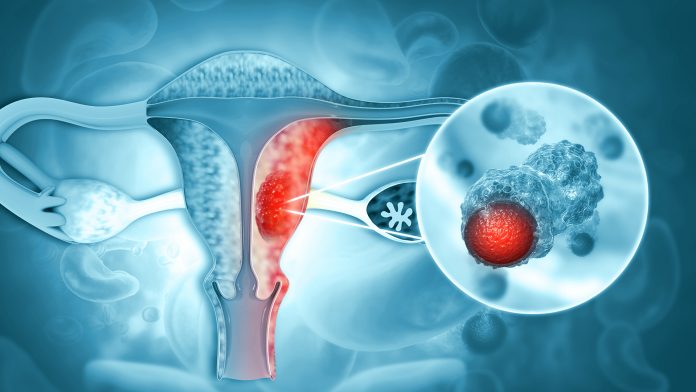
An international research team has identified a new therapeutic strategy to combat endometrial cancer and has begun developing a new treatment.
The new therapy is based on the MAPK kinase ERK5. The pharmacological blockade of ERK5 can inhibit the proliferation and survival of endometrial cancer cells. The researchers also believe the therapy can increase the efficacy of chemotherapy and anticancer activity.
The collaborative study was carried out by the Vall d’Hebron Research Institute (VHIR) and The Autonomous University of Barcelona (UAB), in collaboration with the Oncological Pathology research group at the Institute of Biomedical Research of Lleida (IRBLleida)
Endometrial cancer is a common form of gynaecological cancer and is the fourth most common cancer tumour in women in developed countries. Endometrial cancer often has a good prognosis if the tumour is detected early. However, advanced and aggressive cases have a high mortality rate and are often resistant to standard chemotherapy.
ERK5 works against multiple cancers
Recent research has shown that the ERK5 protein can play a role in the development of several types of solid cancers.
“We observed that up to 48% of patients with endometrial cancer show alterations in components of the ERK5 signalling pathway, which correlate with lower overall survival and reduced progression-free survival. In this work, we found that ERK5 is a promising therapeutic target for the treatment of advanced endometrial cancer,” explained Dr Nora Diéguez, a researcher at the Protein Kinases in Cancer Research group at VHIR and Institute of Neurosciences of UAB.
The therapy successfully treated endometrial cancer in animal models
“Understanding the signalling pathways that are altered in endometrial cancer allows the design of new therapeutic strategies to improve the prognosis of these patients,” said Dr José Miguel Lizcano, head of the Protein Kinases in Cancer Research group at VHIR professor at the Department of Biochemistry and Molecular Biology of UAB.
To gain an understanding of the ERK5 signalling pathway, the researchers carried out experiments in cellular and mouse models. The team used a new ERK5 inhibitor (JWG-071), which is currently in preclinical development. The researchers found that the inhibition of the ERK5 protein reduced the proliferation of tumour cells and impaired the growth of cancerous tumours in animal models.
This process is mediated through NF-κB, a transcription factor that regulates the proliferation and survival of different tumours, including endometrial cancer.
“Since ERK5 inhibition potentiates the efficacy of chemotherapy in animal models, we believe that ERK5 could be an effective target to tackle endometrial cancer,” explained Lizcano.










